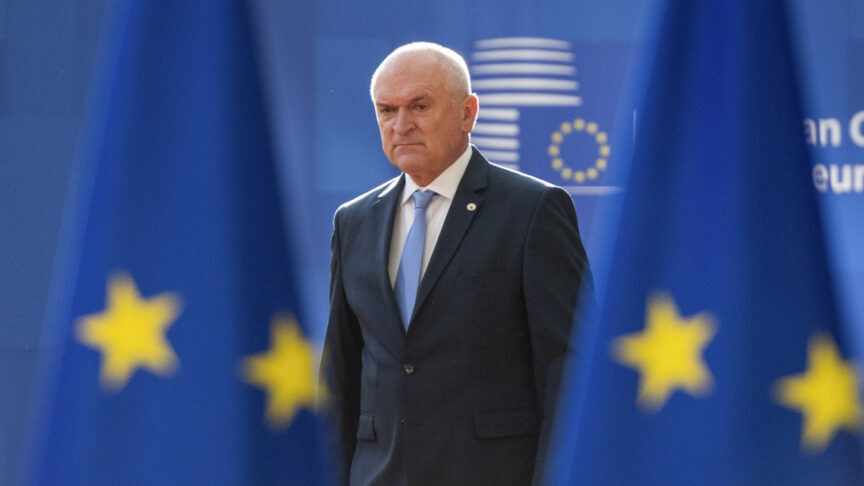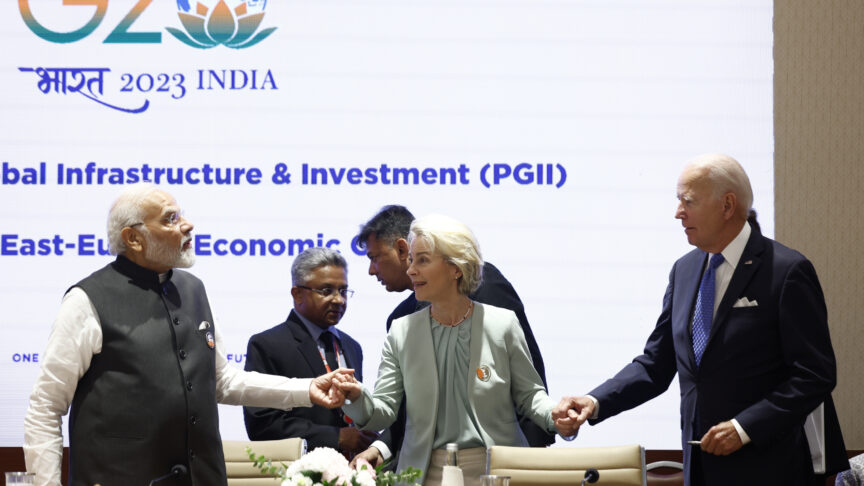Migration myths dominate Italian election campaign
The promises of the leading parties address voters’ imaginary fears rather than practical solutions.
As Italy approaches elections on March 4, with no certainty on the outcome, the political campaigns are largely focussed on migration, rather than on the practical problems facing Italians on a daily basis.
Immigration is now the biggest issue for 36% of Italians (up from just 3% in 2012) despite the fact that Italy’s GDP growth rate is the lowest of the entire euro area (1.5%); its unemployment rate (11.7%) is the third highest after Greece and Spain, and its public debt is among the highest in the world (133% of GDP).
Nativist and eurosceptic actors like Lega Nord and Casapound (a post-fascist movement) spread ideas of migrants as a security threat in order to attack the government and build support for their far-right agenda. This effort has been remarkably successful at painting migrants as the root of Italy’s problems, leaving the centre-left government feeling that it had no choice but to respond with an anti-migrant stance of its own.
Data and facts are almost entirely absent from the debate, and the promises of the leading parties in the campaign address voters’ imaginary fears rather than practical solutions.
Democratic Party (PD)
Matteo Renzi’s Democratic Party is the leader of the centre-left coalition currently in power but trailing the centre-right bloc in the latest opinion polls. Its migration policy has been largely shaped by Minister of the Interior, Marco Minniti, who has pursued a strategy aimed at stopping migrant flows at their source.
Minniti’s ‘dodgy deal’ with local authorities and militias in Libya to prevent migrants from crossing the Mediterranean certainly had an impact. Between July and December 2017 the numbers crossing the Mediterranean to Italy decreased by 68% compared to the same period in 2016, from 111,214 arrivals to 35,617.
However, the other result of this policy is that tens of thousands of would-be migrants have been imprisoned in Libyan ‘detention centres’. Several credible sources have testified to the inhumane conditions in which these migrants are detained, with reports of torture, rape, slavery, and killings.
Apart from the moral failings of this policy, it also misunderstands the nature of migration by conflating smuggling with trafficking. Preventing smuggling (where migrants pay for assistance to reach their destination freely) increases the chances of trafficking, where would-be migrants are exploited by militias.
Forza Italia and Lega
The right’s policies are unrealistic, based on fabricated data, and have contributed to a culture of racial hatred and violent attacks on migrants. After the Macerata shooting, in which a right-wing extremist wounded six Africans in a drive-by shooting, Forza Italia leader Silvio Berlusconi blamed the episode on Italy’s permissive migration policy.
Berlusconi also said that there are 630,000 migrants in Italy, that just 5% has the right to stay, and that the other 600,000 represent a “social bomb” and must be repatriated. This is incorrect on many levels.
First of all, 630,000 is not the number of migrants in Italy, but the number of arrivals between 2014 and 2017, many of whom may have left Italy to reach other European countries. Secondly, 5% is the percentage of asylum seekers who have been granted refugee status. But that does not mean that the other 95% are illegal. About 35% have been accepted under subsidiary and humanitarian protection and have every right to be in Italy. It is misleading and dangerous to depict them as illegal migrants.
Moreover, when Berlusconi and Lega promise to repatriate hundreds of thousands of people, they forget to talk about the feasibility and costs of such an exercise. So far, Italy has been able to repatriate less than 20,000 people per year. This is due to a lack of bilateral agreements with third countries and to the high costs. The average cost of repatriation for one person to Tunisia (the nearest country) is estimated at about €3,833. Notwithstanding the flaws in Berlusconi’s data, to repatriate 600,000 people would therefore cost Italy at least €2.3 billion. Giving the state of public finances, this is quite impossible.
5 Star Movement
The third pole of the Italian political spectrum is the most ambiguous about migration. It declares that the Dublin regulation should be overhauled, but this is not a national prerogative and a reform of the Dublin regulation is already under discussion at the European level.
The 5 Stars Movement has stated that the EU refugee deal with Turkey “turned Italy into the European refugee camp”. However, there is no evidence of a causal link between the reduction of arrivals from Turkey (to Greece) and the increase of arrivals to Italy, as the two flows are qualitatively different: migrants from Turkey to Greece were mostly Syrians, whereas those arriving in Italy are mostly sub-Saharan Africans.
The movement’s official electoral programme states that their goal is “zero arrivals” in five years’ time, without stating how this goal should be reached. It places all the responsibility for the current situation on the European Union, blaming other member states for not supporting Italy appropriately. Far from having a clear and well-argued programme, the 5 Stars Movement seems to be exploiting the migration issue to attract anti-European and anti-migrant voters.
Obviously, there are other positions and shades among the vast spectrum of parties that will take part in the elections. +Europa, founded by former Minister of Foreign Affairs Emma Bonino, advocates for greater inclusiveness towards migrants, but their impact on the policies of the next Italian government will probably be negligible.
In conclusion, what emerges from the analysis of the migration issue in the Italian electoral campaign is the preponderance of deliberately misleading depictions of the problem, and a total lack of long-term, viable solutions. This is both a cause and effect of the growing aversion towards migrants in Italy.
Meanwhile, the Bossi-Fini law, implemented by the second Berlusconi government 16 years ago, remains in place. This law is one of the main reasons for the current legal situation in which thousands of migrants are classified as irregular, as it requires that migrants must already obtain a job contract before entering Italy. That is becoming a pipedream for Italians, never mind foreigners.
As long as the political parties refuse to address such concrete problems, and the media amplifies their distorted messages, it is hard to imagine Italy dealing adequately with the migration challenge. The risk now is that growing social tension might be compounded by political instability, as none of the main three political blocs looks likely obtain a majority on the 4th of March.
The European Council on Foreign Relations does not take collective positions. ECFR publications only represent the views of their individual authors.


